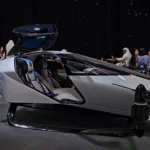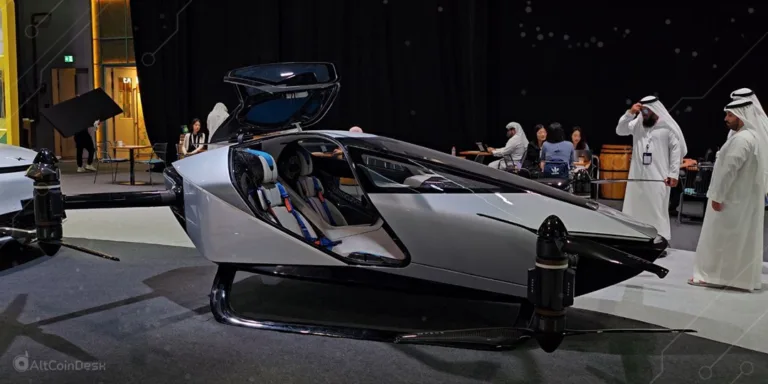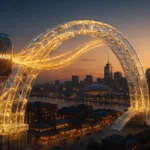The Dubai World Congress for Self-Driving Transport is more than a tech event — it shows exactly how serious the city is about leading in self-driving innovation.
“We are working to make Dubai the world’s most future-ready city, the best place to live and the fastest in adopting innovations that enhance quality of life,” said Sheikh Hamdan bin Mohammed bin Rashid Al Maktoum, Crown Prince of Dubai. The 2025 edition, led by the RTA (Road Transportation Authority of Dubai), and held under his patronage, highlighted the city’s vision for smart mobility and was inaugurated in his presence.
Sheikh Ahmed bin Mohammed bin Rashid Al Maktoum, Second Deputy Ruler of Dubai, and Mattar Al Tayer, Director General of the RTA, opened the event together, sending a clear message: Self-driving transport is central to the city’s growth and global competitiveness.
Dubai’s vision for smart mobility
Dubai has a bold goal: by 2030, 25% of all trips in the city should be autonomous. The Congress isn’t just talking about it — it’s showing it in action.
Take the Dubai Self-Driving Transport Zone, the 15-square-kilometer area that will link Al Jaddaf Metro Station, Dubai Festival City, and Dubai Creek Harbour. The RTA is testing autonomous buses, delivery robots, and even self-driving boats.
And it doesn’t stop with vehicles. The RTA is building the infrastructure to support them: AI-powered traffic management, smart traffic lights, and digital platforms that connect different transport modes.
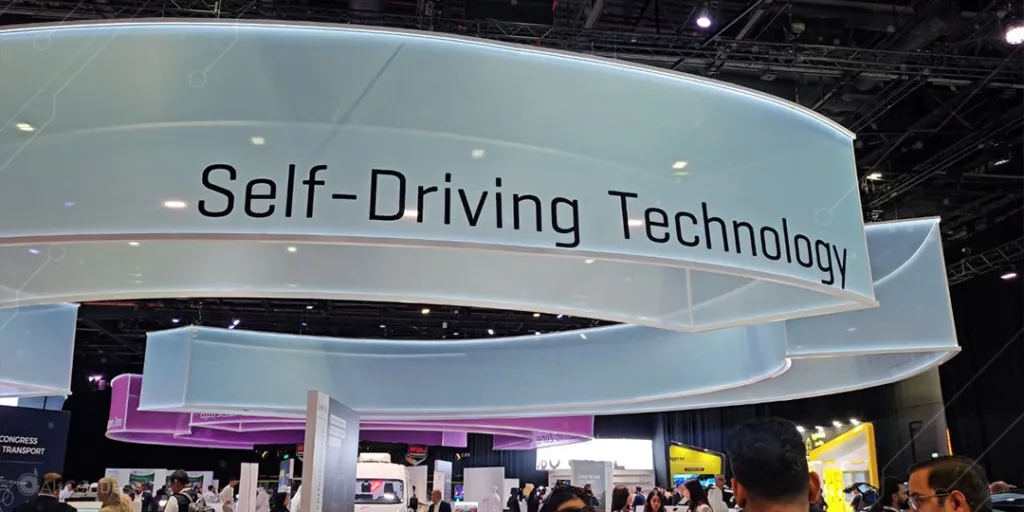
Air taxis, autonomous shuttles, and smart logistics hubs are coming online, too. Together, these efforts show that Dubai sees transport as more than moving people — it’s about efficiency, sustainability, and positioning the city as a global innovation leader.
A new look at AI: Sol Rashidi’s keynote
Sol Rashidi, the world’s first Chief AI Officer, challenged common ideas about artificial intelligence in her keynote. Throughout her career, Rashidi has held C-suite positions at Fortune 100 companies, including Amazon, Estée Lauder, and Merck, where she led transformative AI and data strategies. Notably, she was instrumental in the launch of IBM’s Watson in 2011, one of the earliest and most significant applications of AI in the enterprise sector.
The American-based entrepreneur pointed out the gap between rapid breakthroughs and real-world adoption. Knowledge once doubles every 100 years – today it doubles in as little as 12 hours – yet most organizations struggle to keep pace.
Rashidi highlighted a tough reality: 74-88% of AI projects are canceled or delayed before they ever reach production. Her message was clear – AI isn’t magic. It should be treated as augmented or automated intelligence, not as a cure-all.
The Chief AI Officer drew a sharp contrast between “AI-led, human-supported” systems and “human-led, AI-supported” systems, urging businesses to make deliberate choices, as this distinction makes a massive difference in structuring businesses. Governance, workforce readiness, and new ways to measure ROI were her pillars for success. And Rashidi left the audience with a warning: “Just because something qualifies as being AI, doesn’t mean you should do AI, you have to consider the complexity to deploy data, infrastructure. your talent and where you are.”
A glimpse into the future of mobility in Dubai
The Dubai World Congress for Self-Driving Transport 2025 offered a clear look at how AI and autonomous technology are shaping the way we move. University teams rolled out their autonomous cars alongside RTA self-driving buses and even air taxis, showing the range of smart transportation solutions coming to the UAE.
The experience was futuristic without feeling distant. Robots served coffee and ice cream and even danced—automation isn’t some far-off fantasy, it’s already making its way into everyday business. The check-in process, as well, was seamless and guided by machines. The tech just blended in, quietly streamlining interactions and moving things along without any fuss.
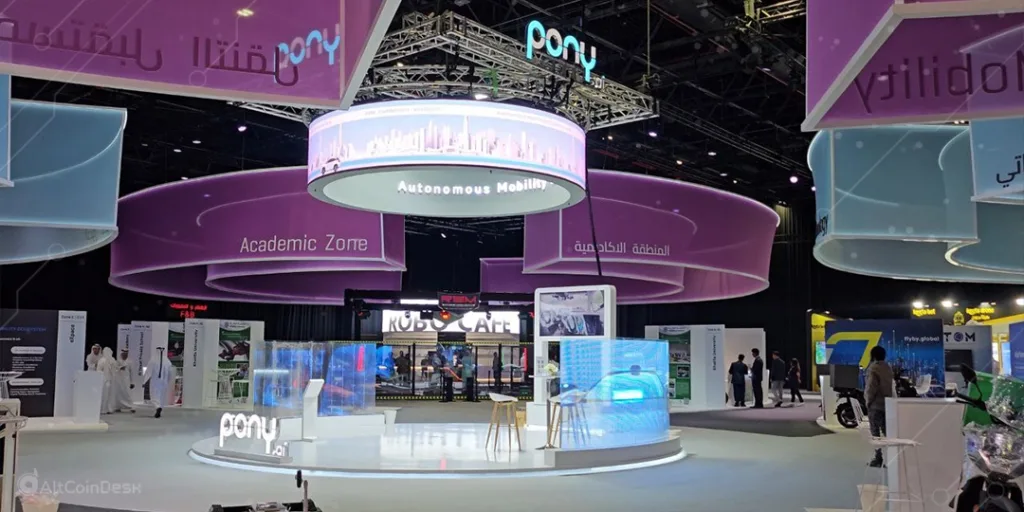
This Congress wasn’t just another trade show—it was more like a live innovation lab. Startups and established brands were mixing it up, sharing concepts and forging partnerships that could genuinely change how cities operate. Autonomous vehicles weren’t just buzzwords or far-off ideas; they were right there in front of people.
Tensor’s leap into Level 4
Next up was Tensor, a Silicon Valley startup introducing what it calls the world’s first Level 4 autonomous car for personal ownership. Hugo Fozzati, the company’s Chief Business Officer, spoke with a mix of technical confidence and personal nostalgia, sharing how a childhood fascination with cars and years of garage startup tinkering led to this moment.
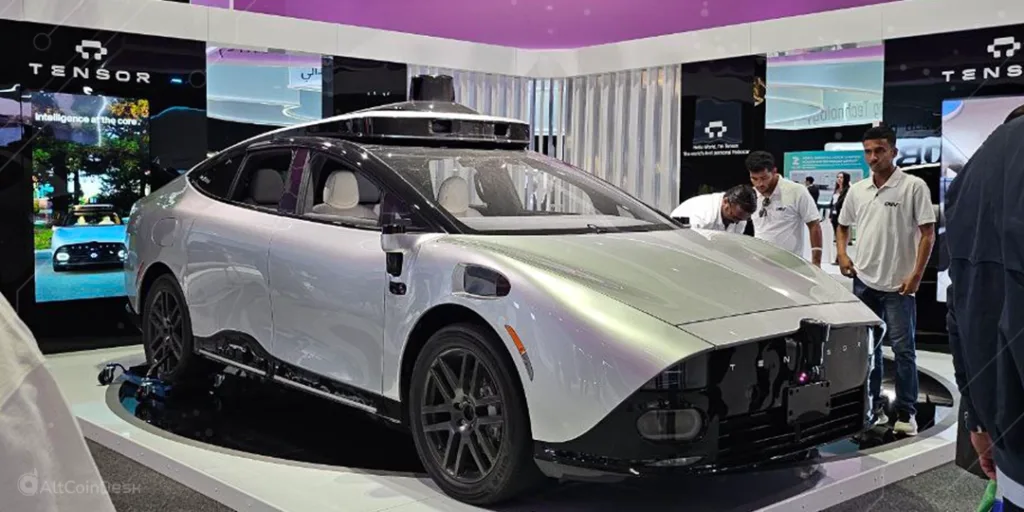
The vehicle is packed with more than 100 sensors, 37 cameras, 5 LiDARs, and 11 radars, and runs on advanced dual-system AI. It can handle desert glare, dust, fog, night driving, and heavy rain with remarkable reliability. Self-diagnostic systems, intelligent sensor cleaning, and autonomous parking and charging make it a fully self-sufficient car.
Designed for private ownership at scale, Tensor puts privacy and safety first. User data, location, preferences, and driving history — stays local and is protected with end-to-end encryption. Safety standards are ambitious, meeting SAE Level 4, FMVSS, UN/ECE, and GSO requirements. Tensor’s innovations include a foldable steering wheel, sliding interior displays, and true dual-mode driving.
Tensor built the Robocar to be more than a car — it’s a personal AI companion that adapts to you. Its sensors, cameras, and radars work together to give the vehicle a human-like awareness, learning from both real-world and simulated experiences. With autonomous decision-making, personalized controls, and privacy-focused data handling, it reacts intelligently while keeping you in control. Tensor sees the Robocar as a partner — combining the reliability of a machine with the responsiveness and trust of a friend.
Dubai’s role in the future
The city has invested heavily in bold infrastructure and future-focused policies – from air taxis to AI-driven public services. The event clarified Dubai’s ambition: to serve not just as an adopter of technology but as a launchpad where the future is built and scaled.
From Rashidi’s reminder that AI must be grounded in human responsibility to Tensor’s vision of personal autonomy on wheels, the Dubai World Congress showed both the excitement and the caution of this moment.
The future is arriving faster than ever; it is in our control in how we guide it — responsibly, thoughtfully, and boldly — this will determine the world we live in tomorrow.


